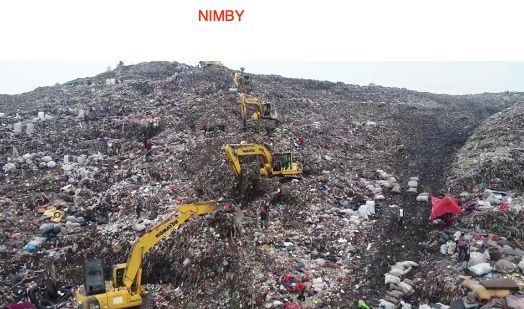Trade protections and regulatory restrictions are a bane to any manufacturer looking to liquidate excess inventory. They lead to decreased cost recovery and increased liquidation time for unsold inventory clogging up a warehouse.
Take certain beauty or industrial products containing raw materials that might be acceptable in their home market but not overseas. A chemical that used to be allowed for trade in the EU might suddenly no longer be allowed.
In a perfect world, supply would naturally pivot away from that market and find a new home. The imperfect reality, though, is when the need to liquidate arises, there is always a threat of over-reliance on one trade lane (from one source to another) both for domestic and export and, therefore, waste. If that manufacturer was used to moving its products and those ingredients to the EU and is no longer able to, usually bad things happen when it comes to cost recovery and the environment.

There might not be enough time for a plan B
As such, diversification is a key part of maintaining a healthy balance of alternative channel liquidation that won't infringe on the manufacturer's main customers or 'backyard.'
A usual occurrence of this is to balance the contractual obligations manufacturers have with retailers to protect the MSRP vs. the threat of unsold inventory landing on a landfill on their doorstep.
When brokers and traders get involved, all traceability and digital tracking go out the window.
The final destination may not even be fully known, which could trigger both illegal reselling in the home market and business waste - for anything the broker or their buyers didn't take.
The intention can be to not liquidate in my backyard, which means don't directly sell to buyers who say they will be reselling in the home market. It doesn't mean that it won't still happen. However, having over-reliance on offline partners or specific trade lanes increases the vulnerability to negative fallout from supply chain disruptions - and creates more landfill waste.
Even these trading partners who have the best intentions not to infringe, sometimes indirectly do so, as it is common for liquidation lists to be shared offline multiple times without the consent of the original receiving party. Additionally, this is done with no knowledge of the manufacturer.
For those familiar with the game telephone, what started out as a straightforward list to be sold for one particular market can suddenly evolve into something more labyrinthine in nature. And it is potentially a threat to be illegally sold in the home market or unauthorized global markets.
A decision to throw away or dispose of products is never taken lightly.
But this inability to have a digital audit on the final destination and measures to correct potential offenders is an important reason why manufacturers sometimes feel obligated to destroy.
The industry as a whole is at an inflection point where environmental costs are beginning to weigh in on what used to be purely financial decisions. Anti-fragility in the supply chain can be a great tool to have proactive liquidation measures or sustainable liquidation.
When we think of sustainable liquidation, the need to liquidate and reduce waste should be eminent even before such inventory is in excess. One way that any manufacturer could do this is to already have an idea of varying liquidation recovery rates and destinations at the time of production.
No one can predict when a customer needs to return a 40ft container or when certain variants don't meet marketing expectations. However, that doesn't mean then the plan to liquidate only starts then. This would be akin to always playing with an NBA shot clock that starts at under 10 seconds when your opponents have the full 24 seconds to get the best shot.
At Pollen, we usually work with our customers on creating optionality at the earliest moments, and learning what data we have collected over time will yield the best result. It might not always be accurate, but having even a faint understanding of potential outcomes means that decision-making switches from emotional to data-driven- and improves through reinforced learning.
In a world moving towards AI for everything, it stands to reason that supply chain teams can benefit by being as prepared as possible and actually getting stronger when the unexpected happens.
This could mean liquidating in your backyard, but under your terms and with all options weighed.
Want to know more about how Pollen's sustainable liquidation management system or liquidation marketplace can help your excess inventory?
Sign up for your free account today!
Enjoyed this article? Share it with your friends and connections, and subscribe to this blog for more updates about Sustainable Liquidation!
